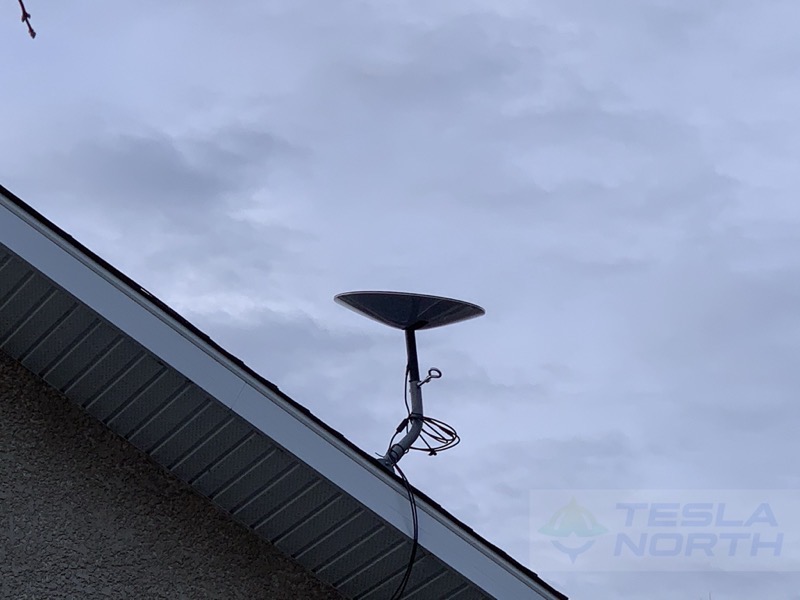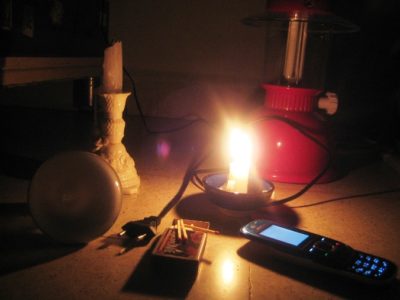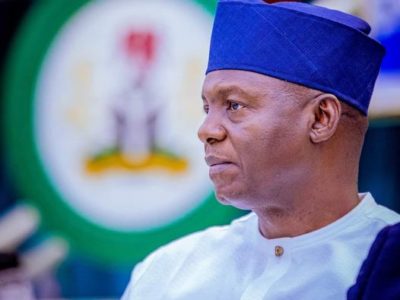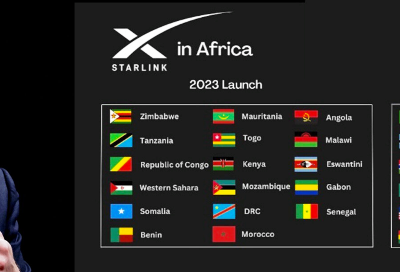Matters eRising with Olusegun Oruame
Elon Musk’s SpaceX is about to disrupt Nigeria’s internet market. Here are what the market should expect.
Nigeria is keen to achieve its target of 70% broadband penetration by the end of 2025 under the new National Broadband Plan (NBP).
The NBP is targeting to “deliver data download speeds across Nigeria of a minimum 25Mbps in urban areas, and 10Mbps in rural areas, with effective coverage available to at least 90% of the population by 2025 at a price not more than N390 per 1GB of data (i.e., 2% of median income or 1% of minimum wage).”
Broadband penetration is currently below 50%. It was 45.43% as at November 2020.
SpaceX will be exploring the broadband internet market in Nigeria through its Starlink brand under which it has launched over 1,000 satellites into orbit. Entering any market with a portfolio of over 1000 satellites in your kitty should cause more than a stare for existing operators.
“Starlink is not going to have an easy walk in the market. Its own survival … will depend on a mix of factors that include regulatory interventions by the NCC and how the strong active [GSM] players respond to make the market a GSM or satellite dominated space.“
This is how the company announced itself on its site: “Starlink is now delivering initial beta service both domestically and internationally, and will continue expansion to near global coverage of the populated world in 2021.
“During beta, users can expect to see data speeds vary from 50Mb/s to 150Mb/s and latency from 20ms to 40ms in most locations over the next several months as we enhance the Starlink system. There will also be brief periods of no connectivity at all.
“As we launch more satellites, install more ground stations and improve our networking software, data speed, latency and uptime will improve dramatically.”
The country’s telecom regulator, Nigerian Communications Commission (NCC), has confirmed that it is in the final process of issuing a licence for SpaceX to unleash its satellite-based broadband services through Starlink.
It’s a GSM market led by MTN
This is where it gets very interesting. The Nigerian market is currently dominated by MTN, Glo and Airtel leaving operators like 9Mobile and nTel at the fringe.
With about 192,081,282 active telecoms subscribers in March 2021 to go by the records of the NCC, Nigeria is the largest telecoms market in Africa and the Middle East.
This is how the internet market played out as at Q3 2020 with MTN dominating the market. The telco’s active internet subscribers were 64.35 million to give it a market control of about 42%. Airtel had a 27% market share with 40.31 million and Globacom took the 3rd place with 39.13 million internet subscribers and a 26% market share. 9mobile settled for a 5% presence with no more than 7.3 million internet subscribers.
As at March 2021 (Q1 2021), the number of active telecoms subscribers have significantly increased but the structure of dominance remains as MTN still leads the others in the same order as was the case in Q3 2020.
According to Statista, “One gigabyte for mobile internet in Nigeria cost on average 1.39 U.S. dollars (about N667.2) as of February 2020. The country ranked 58 in a list of 228 countries worldwide, from the cheapest to the most expensive for mobile data.
“In the regional comparison, Nigeria was among the nations with lower costs for mobile data in Africa. Out of 52 plans analyzed in the country, the lowest price observed was 0.48 U.S. dollars per 1GB for a 30 days plan. In the most expensive plan, 1GB cost 5.55 U.S. dollars.”
By 2025, Nigeria wants to reduce the price of 1GB of data to no more than N390 as against the current price of over N667.
Will Starlink begin the satellite dominance?
It appears this is about to change. From a consumer’s perspective; lower data price at a higher speed is about to happen. From an operator’s viewpoint, a troublesome disruptive network is about to enter the market and alter the dynamics in ways unforeseen.
Startlinks boasts of an easy to deploy service, In the company’s words: “Your Starlink Kit arrives with everything you need to get online including your Starlink, Wi-Fi router, power supply, cables and mounting tripod.
“Starlink requires a clear view of the sky to connect. Download the Starlink App to determine your best install location.” The Starlink app for Android and iOS uses augmented reality to help customers pick the best location and position for their receivers.”
Why is the satellite company bound to be disruptive? “Starlink is ideally suited for areas of the globe where connectivity has typically been a challenge.
“Unbounded by traditional ground infrastructure, Starlink can deliver high-speed broadband internet to locations where access has been unreliable or completely unavailable.”
Starlink services come to you through small satellite dishes no bigger than the DSTv satellite dishes you are already used to in your homes and offices. The ease of purchase and deployment would allow for faster uptake in a market that is hungry for affordable services. All it takes to set up is a small satellite dish at your home or office to receive “the signal and pass the bandwidth on to your router.”
Remember what GSM operators did to CDMA operators?
This is where it gets awkwardly interesting. Remember what GSM operators did to CDMA operators at the onset of GSM services in Nigeria? Now, that is about to happen again. But this time, it is the horde of GSM operators: MTN, Airtel, Globacom that are at risk of fading away in the emerging competition.
However, Starlink is not going to have an easy walk in the market. Its own survival and the direction the market will ultimately take will depend on a mix of factors that include regulatory interventions by the NCC and how the strong active players like MTN, Airtel, Glo respond to make the market a GSM or satellite dominated space. After all, it is to their credit that CDMA operators went into extinction and Nigeria became a GSM-defined market.
Image: iPhone in Canada




























